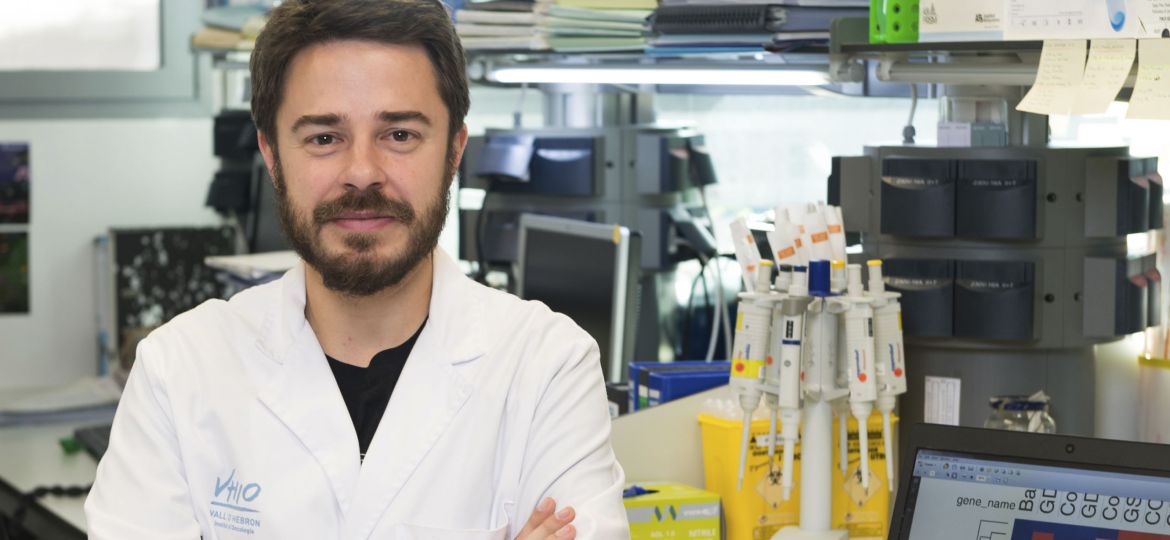
- In the past, no therapeutic alternatives were available for patients who had exhausted up to three lines of treatment with tyrosine kinase inhibitors. A new drug has been incorporated to the therapeutic armamentarium for advanced GIST.
- The results of the INVICTUS study, which demonstrates the efficacy of ripretinib in patients with advanced GIST, have been published in the journal The Lancet Oncology. This study was key to FDA’s approval of ripretinib, granted two weeks ago.
- With a very good safety profile, ripretinib substantially improves progression-free and overall survival.
Barcelona, June 5, 2020.– A new drug called ripretinib has been developed for the treatment of advanced gastrointestinal stromal tumours (GISTs). The INVICTUS study demonstrates the efficacy of ripretinib in patients who have received all approved treatments for GIST and have exhausted all therapeutic alternatives. The results of this study, which Principal Investigator is Dr. Jean-Ives Blay of the Department of Medical Oncology of the Centre Léon Bérard and the Université Claude Bernard of Lyon, France, are published today in the journal The Lancet Oncology. The only Spanish researcher involved in the study is Dr. César Serrano, a medical oncologist in Vall d’Hebron University Hospital and leader of the Sarcoma Translational Research Group of Vall d’Hebron Institute of Oncology (VHIO).
“The results of this study demonstrate that ripretinib is an active drug in patients with advanced GIST refractory to all approved treatments, who had no therapeutic options to date. The new drug emerges as a new treatment standard for these patients. The INVICTUS study was key to FDA’s approval of the drug, announced two weeks ago. Now it is under review by the EMA in Europe and the Spanish Agency for Medicines and Medical Devices”, explains Dr. César Serrano, who has led the recruitment of patients in VHIO for this study.
A cutting-edge mechanism of action
GIST, a type of sarcoma, is a very rare type of tumour that accounts for 1-3% of malignant gastrointestinal tumours. The low prevalence of this disease represents a challenge to the efforts of researchers to find an active agent. Nevertheless, this type of tumours have a well-defined biology that facilitates the development of targeted therapies. Up to 85% of GISTs contain an oncogenic mutation in a tyrosine kinase receptor, either the KIT or PDGFRA gene; therefore new treatments targeting these genes are being developed. The development of imatinib in the early 21st century represented a revolution in the treatment of the disease, as metastatic or unresectable GIST went from being a fatal disease to being a manageable, survivable disease, with a lasting response and an improved overall survival.
However, after treatment with imatinib, patients may develop secondary resistance mutations in KIT and PDGFRA that may impede binding of imatinib and transform the kinase to an activated state. This phenomenon causes substantial heterogeneity, thereby resulting in the development of resistance. “The inhibitors currently approved do not cover all secondary resistance mutations. Thus, there were no therapeutic options for patients who had disease progression and developed resistance to inhibitors such as imatinib, sunitinib or regorafenib. For this reason, there was an urgent need for new therapies to be developed for these patients” says Dr. Serrano.
By directly targeting the switch pocket area of the kinase, the innovative mechanism of ripretinib makes it effective against all these secondary mutations. The switch pocket area acts as an “on/off switch” that confers the kinase either an active or inactive conformation. According to Dr Serrano “mutations never appear in the region where the switch-pocket is located. This explains that targeting this kinase yields so good results, regardless of the resistance mutation developed”.
Very favourable results
The INVICTUS study was a multicentric, randomized, double-blind, phase-3 study that involved 129 patients from different countries. The study included patients with advanced GIST who had received at least three lines of treatment with imatinib, sunitinib and regorafenib. Patients were allocated to receive either ripreinib or placebo.
“The results demonstrate that ripretinib reduces the risk of disease progression or death by up to 85%, as compared to placebo“, explains Dr Serrano. The study reports a progression-free survival of 6.3 months versus 1 month in the placebo group. “This was translated into a higher overall survival, which reached 15 months compared to 6.6 months in the placebo group. A lasting response was also achieved, and 51% of patients who received ripretinib remained free of progression at 6 months, as compared to 3.2% in the placebo group” says Dr. Serrano, who remarks the good safety profile of the drug.
Another noteworthy aspect of ripretinib is that patients demonstrate very good tolerance to the therapy. Only 2% of patients developed the most severe adverse events associated with the drug. “The most common adverse effects are an increase in lipase, hypertension, fatigue, and hypophosphatemia. The acceptable toxicity profile of the drug is another important aspect”, says Dr Serrano.
The results obtained in this study confirm that ripretinib emerges as a new standard therapy in patients with advanced GIST previously treated with three approved tyrosine kinase inhibitors, a subgroup of patients for whom no therapeutic alternatives were available in the past.











